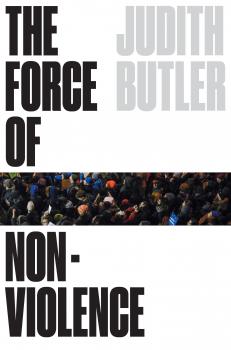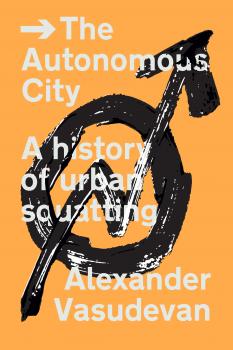Социология
Различные книги в жанре СоциологияThe Force of Nonviolence
Judith Butler’s new book shows how an ethic of nonviolence must be connected to a broader political struggle for social equality. Further, it argues that nonviolence is often misunderstood as a passive practice that emanates from a calm region of the soul, or as an individualist ethical relation to existing forms of power. But, in fact, nonviolence is an ethical position found in the midst of the political field. An aggressive form of nonviolence accepts that hostility is part of our psychic constitution, but values ambivalence as a way of checking the conversion of aggression into violence. One contemporary challenge to a politics of nonviolence points out that there is a difference of opinion on what counts as violence and nonviolence. The distinction between them can be mobilised in the service of ratifying the state’s monopoly on violence. Considering nonviolence as an ethical problem within a political philosophy requires a critique of individualism as well as an understanding of the psychosocial dimensions of violence. Butler draws upon Foucault, Fanon, Freud, and Benjamin to consider how the interdiction against violence fails to include lives regarded as ungrievable. By considering how ‘racial phantasms’ inform justifications of state and administrative violence, Butler tracks how violence is often attributed to those who are most severely exposed to its lethal effects. The struggle for nonviolence is found in movements for social transformation that reframe the grievability of lives in light of social equality and whose ethical claims follow from an insight into the interdependency of life as the basis of social and political equality.
We Have Never Been Middle Class
Tidings of a shrinking middle class in one part of the world and its expansion in another absorb our attention, but seldom do we question the category itself. We Have Never Been Middle Class proposes that the middle class is an ideology. Tracing this ideology up to the age of financialisation, it exposes the fallacy in the belief that we can all ascend or descend as a result of our aspirational and precautionary investments in property and education. Ethnographic accounts from Germany, Israel, the United States and elsewhere illustrate how this belief orients us, in our private lives as much as in our politics, toward accumulation-enhancing yet self-undermining goals. This meshing of anthropology and critical theory elucidates capitalism by way of its archetypal actors.
The Autonomous City
A radical history of squatting and the struggle for the right to remake the city The Autonomous City is the first popular history of squatting as practised in Europe and North America. Alex Vasudevan retraces the struggle for housing in Amsterdam, Berlin, Copenhagen, Detroit, Hamburg, London, Madrid, Milan, New York, and Vancouver. He looks at the organisation of alternative forms of housing—from Copenhagen’s Freetown Christiana to the squats of the Lower East Side—as well as the official response, including the recent criminalisation of squatting, the brutal eviction of squatters and their widespread vilification. Pictured as a way to reimagine and reclaim the city, squatting offers an alternative to housing insecurity, oppressive property speculation and the negative effects of urban regeneration. We must, more than ever, reanimate and remake the urban environment as a site of radical social transformation..
Cities of Power
Why are cities centres of power? A sociological analysis of urban politics Why are some cities more powerful than others? What makes a capital city different from others in a nation state? In this brilliant survey of urban politics, leading sociologist Göran Therborn looks at what makes a metropolis. Through a historical lens and a global perspective, Therborn questions received assumptions about the source of urban power and how it manifests itself. He looks at the way that architecture and social movements have had their impact on the way cities work. He explores what makes a ‘global city’. And argues that, at a time when they seem to be moving apart, there is a strong link between the city and the nation state. With examples from revolutionary Paris to the rise of the post-colonial capitals of the Global South and the mega cities of the twenty first century, Therborn forces us to think about what our urban future might look like.
Living in the End Times
Zizek analyzes the end of the world at the hands of the “four riders of the apocalypse.” The underlying premise of the book is a simple one: the global capitalist system is approaching an apocalyptic zero-point. Its four riders of the apocalypse are the ecological crisis, the consequences of the biogenetic revolution, the imbalances within the system itself (problems with intellectual property, the forthcoming struggle for raw materials, food and water), and the explosions of social divisions and exclusions. Society’s first reaction is ideological denial, then explosions of anger at the injustices of the new world order, attempts at bargaining, and when this fails, depression and withdrawal set in. Finally, after passing through this zero-point we no longer perceive it as a threat, but as the chance for a new beginning. or, as Mao Zedong might have put it, “There is great disorder under heaven, the situation is excellent.” Žižek traces out in detail these five stances, makes a plea for a return to the Marxian critique of political economy, and sniffs out the first signs of a budding communist culture in all its diverse forms—in utopias that range from Kafka’s community of mice to the collective of freak outcasts in the TV series Heroes .
Healing Traumatized Children
Because millions of children experience early trauma and attachment disruptions, whether through death, physical or sexual abuse, domestic, community, or school violence, terrorism or other tragic losses, parents and professionals need not just vague theories but a proactive plan for healing relationship avoidant children.Healing Traumatized Children authors Hall, Merkert and Biever have successfully merged mental health, trauma, and attachment, parenting and in-home treatment strategies into a single comprehensive resource for parents and professionals. The authors emphasize the importance of an in-home plan (where the healing must begin), outline how to effectively assemble a support network, provide the keys to the establishment of a therapeutic home environment, discuss psycho-education that identifies the six distinct Trauma Disrupted Competencies and provide multiple types of healing interventions.Healing Traumatized Children confirms that without effective in-home intervention, many of these children will become involved in juvenile and adult justice systems and continue the intergenerational transmission of maladaptive relationships, abuse, and neglect. It is important to remember that these children will eventually become tomorrow’s parents.
Adopting Older Children
Are you thinking of adopting an older child? There are 200,000 plus hoping for families in the U.S. alone and more worldwide. Adopting an older child, though, presents a unique set of parenting issues as well as rewards.Adopting Older Children highlights the most significant challenges when parenting older adoptees who face mental health, behavioral and educational issues. Included is critical information about developmental issues that may arise for the adoptee, issues related to the adoptee's emerging sense of self, sexual orientation and cultural identity and other special needs that an adoptee may have. This will help prospective parents be aware of concerns that can arise for their adopted children and help current parents deal with the difficulties their children may be facing. An older adopted child may face a list of problems, included is a comprehensive overview of clinical and other problems that may arise and how to successfully deal with them. Authors Bosco-Ruggiero, Wassel and child welfare expert Groza deliver a comprehensive guide to navigating the adoption processes domestically and internationally, coping with transition and family dynamics and to educating others about adoption. Adopting Older Children not only focuses on preparing the family unit but offers chapters to better understand the personality, background and problems of your adopted child. It provides methodology to comprehend and cope with the traumatized child, grief and loss, attachment issues, development and learning, mental health concerns, physical health (fetal alcohol syndrome, abuse, etc.) as well as providing critical resource information for adoptive parents (single, LBGT or older adoptive parents).Practical and extensive, Adopting Older Children furnishes key parenting strategies and insights in a clear, sensitive style, becoming the definitive resource for adoptive parents and professionals.









